We joined three shutters with a new wood to create this one of a kind headboard. Scour consignment and salvage stores to find old shutters. The shutters we use are 10" x 64". You may need to adjust the size based on the size of your blinds and the size of your bed. We made our headboard for a full size bed, so our finished dimensions are 33-1/2"H x 59"W x 2-1/4"D.
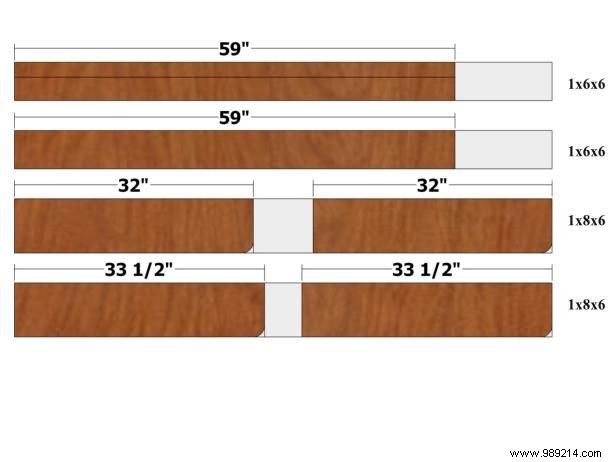
Along with the shutters, we had to purchase (2) 1x6 x 6' and (2) 1x8 x 6' to make our headboard. Here is our cut list :(1) long shutter at 1-1/2” x 10” x 33-1/2”; (2) short shutters at 1-1/2" x 10" x 32"; (2) long filler boards at 3/4" x 7-1/4" x 33-1/2"; (2) short filler boards at 3/4" x 7-1/4" x 32"; (1) header strip at 3/4" x 3-1/16"* x 59"; (1) wall studs at 3/4" x 3-1/16"* x 59"; (1) offset board at 3/4" x 5-1/2" x 59". (* the widest face)

Mark a shutter at 33-1/2". Remove any hardware that may be in the path of this line. Use a miter saw if it is wide enough to accommodate the width of the shutter. Otherwise, use a circular saw. with a ruler. Be sure to hold the shutter in place while cutting. If the shutter is long enough, mark the remaining part of this shutter at 31” and cut. Mark another shutter at 31” and cut to create the two more shutters short.
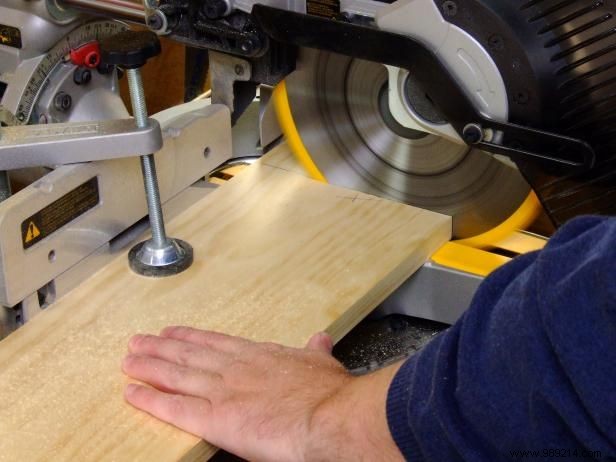
Cut long filler boards and short filler boards per cut list.

Use a compass to mark a 1-1/2” radius on one corner of one of the filler boards. Use a hacksaw to cut the bow. Sand rough edges smooth.
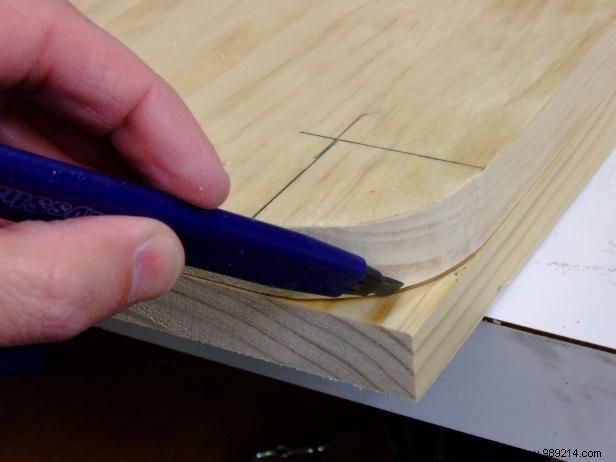
Use the board with the corner cut off as a template to mark the radius on one side of the remaining filler boards. Cut the corners on the remaining boards.

Lay the filler boards and shutters flush with each other and measure the width. This will be the length of the offset board and wall studs. Lay the two short filler boards flush with the edges so the arches are at the top outside corner. Attach the two long filler boards in the same way.
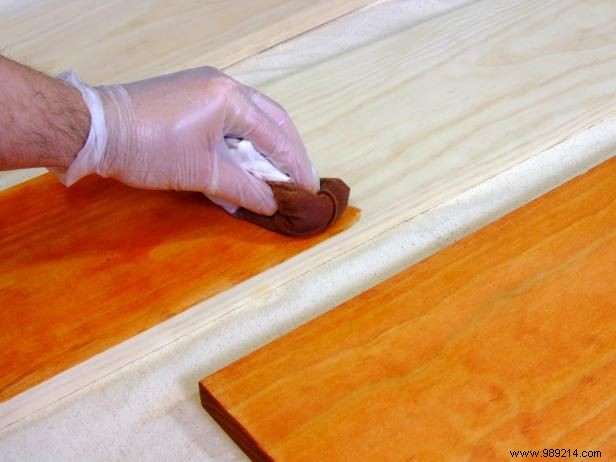
Apply pre-stain conditioner and stain to the face of the boards. Stain the edges and ends as well. When dry, apply a layer of polyurethane.
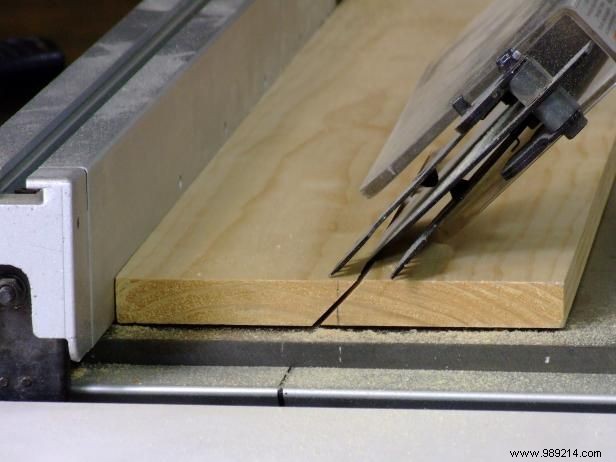
Determine the length of the staple and cut it to size. It should be about the same size as the offset (rear) plate. Mark a center line at the end of a 1x6 and then draw a 45 degree angle that bisects this center point. Set the blade on your table saw at a 45 degree angle and cut the 1x6 to create the headboard staple and wall staple.

Lay the offset board (back) flush against a straightedge. Position the header staple parallel to the offset board. Position the shutters and filler boards perpendicular to the cove and offset boards. Adjust until the placement is exactly how you want it. Clip in place.

Start with one of the shorter filler boards, and attach it to the offset board with glue and at least four #17 x 1-1/4" wire dowels (make sure they are flush with the straightedge and offset board). compensation).
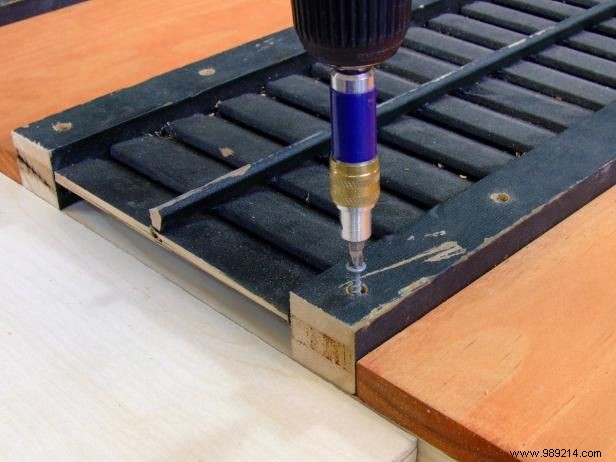
Place one of the short shutters flush against this board and attach it to the offset board with four 2” screws. Place a long filler panel flush against this shutter and attach to the offset board using four more 1-1/4” wire pins. Position the long filler panel flush against the long filler panel and secure to the offset board with four 2" screws. Repeat the steps in reverse (long filler panel, short filler, short filler) joining the pieces of the same way.

Recheck the position of the head staple. Use a square to keep the board in line and the brace in place. Attach the filler boards and shutters to the staple in the same material they were attached to the offset board.

Position the headboard assembly in the desired location, flush against the wall you plan to install it on. Position the wall staple flush and against the header staple. Mark the position of the wall staple. Use a level to square the cove and attach it to studs in the wall using 3-1/2” screws. (The drywall is transparent in this illustration to show the position of the studs.)

This illustration shows how the cove piece on the headboard fits into the wall piece.
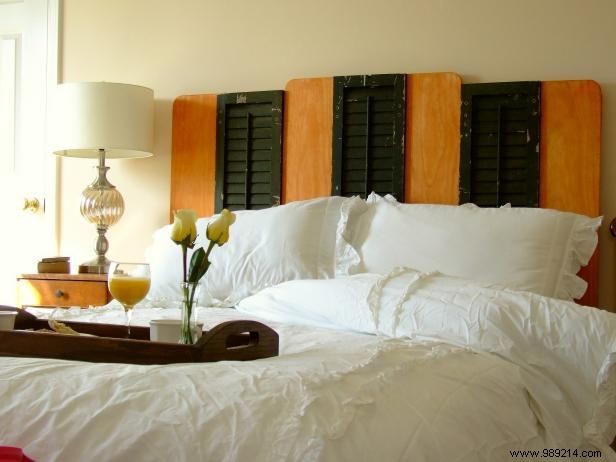
In the end, you'll have a stylish headboard made from new and reclaimed materials.